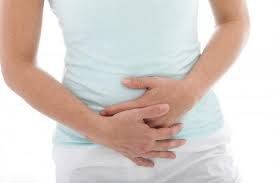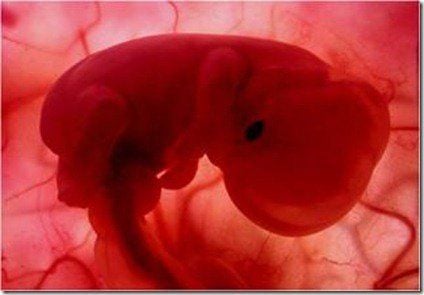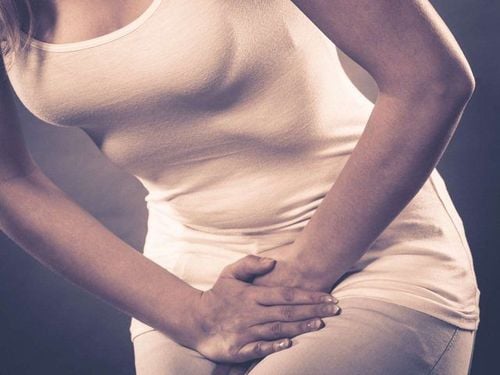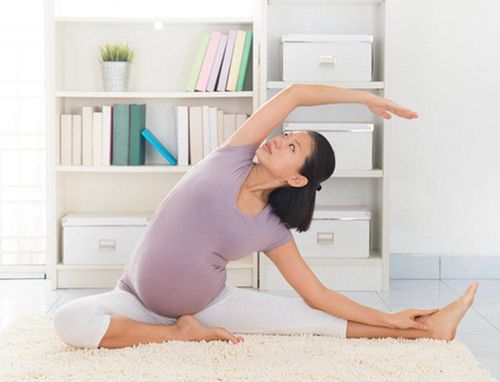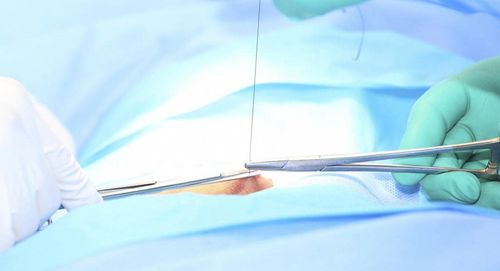This is an automatically translated article.
The article is professionally consulted by Specialist Doctor I Truong Nghia Binh - Specialist in Obstetrics - Obstetrics and Gynecology - Vinmec Da Nang International HospitalUterine contractions are strongest during labor to help deliver the baby. However, if this contraction continues for a long time with strong nature, causing a lot of pain, it can cause obstetric complications such as postpartum hemorrhage, vaginal bleeding a lot... which is life-threatening. of pregnant women.
1. How to make contractions highly effective during childbirth?
To help pregnant women reduce pain and increase efficiency for each time of taking strength, some tips are given as follows:During pregnancy, pregnant women should exercise gently, participate in physical activities such as: walking, doing yoga, exercising in the morning or afternoon,... these things work to help the pelvis expand and exercise before giving birth. During labor, pregnant women should breathe properly (breathing deeply, breathing deeply and slowly, breathing only through the nose). This helps the mother to ease the pain and speed up the labor process.
2. Consequences of postpartum contractions
2.1 Vaginal bleeding Normally after giving birth there will be vaginal bleeding, but in a small amount, not more than menstrual blood. However, in some special cases, such as uterine contractions that last longer than usual, it can also make vaginal bleeding more difficult to stop. Or in the case of placental abruption, a lot of exercise, vigorous exercise also causes more bleeding.
2.2 Postpartum Hemorrhage When the uterus does not contract properly postpartum (postpartum contractions) will lead to postpartum hemorrhage. Bleeding occurs when the uterus, cervix, or vagina is torn. Therefore, after giving birth, most women are monitored to ensure normal uterine contractions.
When there is a disorder, the mother will receive a massage of the uterus to help it contract properly, or be injected with oxytocin as prescribed by the doctor. Bleeding can occur immediately after birth, during the first week or longer than 2 weeks postpartum. If the placenta is left in the uterus, surgery is needed to remove the placenta.
2.3 Perineal pain When the uterus is stimulated, perineal pain is an unavoidable symptom. For women who give birth vaginally, there is often pain in the perineum, especially between the rectum and the vagina, because tissues are stretched or congested or torn during childbirth. Furthermore, you may feel more pain because your perineum has been cut during childbirth.
3. Effective postpartum care for pregnant women
3.1 Nutrition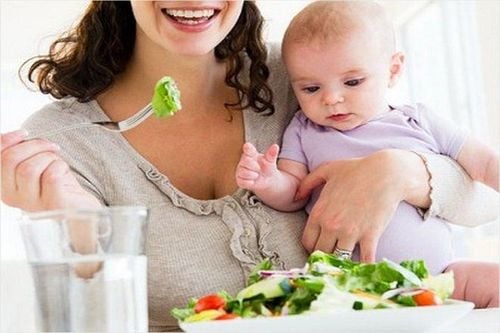
For the breast, 2-3 days after giving birth, milk begins to secrete, so the baby should immediately suckle colostrum, suckle several times a day to stimulate milk secretion. If the milk secretion is blocked, so actively breastfeed the baby, that symptom will gradually disappear. Avoid squeezing or squeezing in the wrong way, causing broken glands and milk ducts. Breastfeeding will help the mother's uterus contract well, soon return to its normal size and create a state of elation and attachment to the baby in the mother.
3.2 Body hygiene Need to clean the vulva area at least 3 times a day in the morning, afternoon and evening before going to bed. If the discharge is a lot, the mother should clean more often. Need to change bandages, toilet paper, towels, washing water must also be clean. It is recommended to use cooled boiled water or warm water to bathe and dry after washing.
After giving birth about 2-3 days, pregnant women can take a full-body bath but need to take a quick bath for 5-10 minutes, do not bathe in a tub or basin (especially do not soak in water).
For pregnant women who have had a cesarean section or an episiotomy, caution should be exercised with the wound to avoid loosening the sutures. Also from 3-4 days after giving birth, pregnant women can wash their hair but should wash it quickly and dry it quickly. To avoid dizziness and prolonged exposure to water, women should not shower at the same time, but should shower around 9-10 am and then wash their hair at noon.
3.3 Healthy living habits After giving birth, it is still important to maintain and stabilize your health. Some activities to help mothers quickly regain their health and shape such as exercise, breathing exercises, cotton diapers can be used to prevent stomach cramps, yoga,... In the long run, your health will improve markedly. In addition, the above activities also help to relax the mind and reduce stress during childcare.
Vinmec International General Hospital offers a Package Maternity Care Program for pregnant women right from the first months of pregnancy with a full range of antenatal care visits, periodical 3D and 4D ultrasounds and routine tests to ensure that the mother is healthy and the fetus is developing comprehensively.
Pregnant women will be consulted and checked for health under the close supervision of experienced and specialized Obstetricians, helping mothers have more knowledge to protect their health during pregnancy as well as reduce reduce complications for mother and child.
Please dial HOTLINE for more information or register for an appointment HERE. Download MyVinmec app to make appointments faster and to manage your bookings easily.





